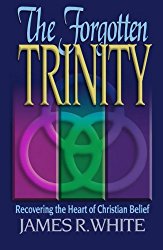It does not, of course, follow from this allusion that St. Paul, or even the rabbis, believed their Hagadah in other than a metaphorical sense.
Matthew does not agree with you for he says you hast not lied unto men, but unto God.
Mat_24:36 "But concerning that day and hour no one knows, not even the angels of heaven, nor the Son, but the Father only.
Mat 12:32 And whoever speaks a word against the Son of Man will be forgiven, but whoever speaks against the Holy Spirit will not be forgiven, either in this age or in the age to come.
Eph 5:24 Therefore as the church is subject unto Christ, so let the wives be to their own husbands in every thing.
1Co 11:3 But I would have you know, that the head of every man is Christ; and the head of the woman is the man; and the head of Christ is God.
1Co 15:27 For "God has put all things in subjection under his feet." But when it says, "all things are put in subjection," it is plain that He is excepted who put all things in subjection under Him.
28 When all things are subjected to him, then the Son himself will also be subjected to Him who put all things in subjection under him, that God may be all in all.
he-man,
1. To get just metaphorical in 1 Corinthians 10 would have to be because Christ was not Christ in the old testament for he was not born yet to the virgin Mary. I stated that and that is biblically true.
However, it doesn't mean Christ was not pre-existent before the Messianic birth to Mary.
2. Jesus said, Before Abraham was I am and Paul said Christ was the rock they drank of. What would be the purpose for these being metaphysical? The actual rock was not Christ but it was because he was the supplier. A metaphysical meaning would mean no real entity to perform that miracle be a purposeful meaning for Christ to be before Abraham.
If you take these scriptures verbatim you would conclude oneness as in Christ, God's son being the one God with 3 manifestations.
The problem with this is that it destroys the validity of compound unity which has the plural of Elohim to show more than one person in the Godhead and not manifestations.
God the Father is God and there is no contradiction of lying to God and not men.
3. The subjection theory is understood in the inferior context. It should be understood in the position context. Employees are subject accordingly in the correct perspective job and must be for the employer is responsible for overseeing. The employer does not laud his authority in the wrong way and it doesn't cover every aspect of his life. Even a son when he is on his own his father has no more hold of authority on him. This clearly shows that the plan of redemption was created by all the God head not just the father.
4. I understand the scripture of the church to Christ because he is the absolute authority over his church and the wife is to be in subjection in everything because the woman was made from man and was the first to sin. The man has to be subject to Christ in order for his wife to be in subject to him for the intended purpose of harmony and design. This in no way should make the wife inferior for the husband is also to be subject to his wife too.
Christadelphians go to seed to much on the subjection theory and I think sometimes they have an alpha male attitude. Outside of that others just go to seed on the word subjection. Subjection is not used in the inferior context or meaning in 1 Corinthians 15.
5. The father's responsibility and knowledge of the coming is his and not the son. There is no inferior subjection context to this. It does show the true nature of relationship and their order of responsibility.
6. The sin against the son being forgiven doesn't show inferiorism with God the Father. It contrasts with the Holy Spirit who is 3rd person of the Godhead unless you are christadelphianism and believe it is the personal spirit of God the father or use the scriptures metaphorically which is not the case according to the context of the scriptures that show him as a person like the father and the son and the fact that he can be lied to and he can brood over the waters as in Genesis 1 and many other scriptures.
7. I have addressed Ephesians and Corinthians.
8. I will say the last verse in Corinthians 15 is about being God all in all. This is speaking about the physical kingdom of Heaven which Daniel talks about being forever in Daniel 7. This physical earth which is the kingdom of heaven that Jesus preached to the jews about the KoH rule in his Messianic ministry that they rejected and will accept in the future when they obey him; Hebrews 8:7-13 as a nation. The KoH will usher in the KoG when all sin and rebellion will be rid of.
God is all in all in himself but the KoH as in the physical aspect of this earth has to be brought back into harmony. There is no inferior context or meaning in this verse either.
9. Oneness destroys the validity of compound unity expressed in the scriptures and the validity of a relationship of a family structure and lowers it to metaphysical manifestations.
10. Christadelphianism devalues the reality of the virgin birth and the only hope and need for redemption as being a sinless man and not deity. This means that a sinless man could be the mediator between God and man.
11. It also denies that God could pull off the virgin birth etc. because deity cannot die etc. It also creates an inferior context of subjection and destroys the true picture of authority and responsibility and harmony.
It is of utmost importance to understand how the Godhead works and operates and makes decisions etc. It is of utmost importance to understand the kenosis of Christ which was the emptying of his Godly attributes.
Hebrews said, he took on the nature of man and not of angels. This shows that he was God and this is why he is referred to as the God-man. He had to be birthed as a man, live as a man and die as a man. Being birthed as a man he was the Son of God. To live as a man he could show compassion to man because it was through his sufferings that he learned obedience and showed that man with God could overcome. He also suffered so he could identify with man and intercede for him in the Holy of Holies. He had to die like man for deity cannot die. Because he took on the nature of man and not of angels he had to be deity for there are no other species to fit the criteria. Taking on the nature of man is proof he was deity and becoming a man shows he had to die like a man and not deity.
12. The trinity proves compound unity, true relationship and responsibility in the proper order and the proper perspective of the scriptures across the board. Oneness and dualism or Christadelphianism does not. Jerry Kelso


